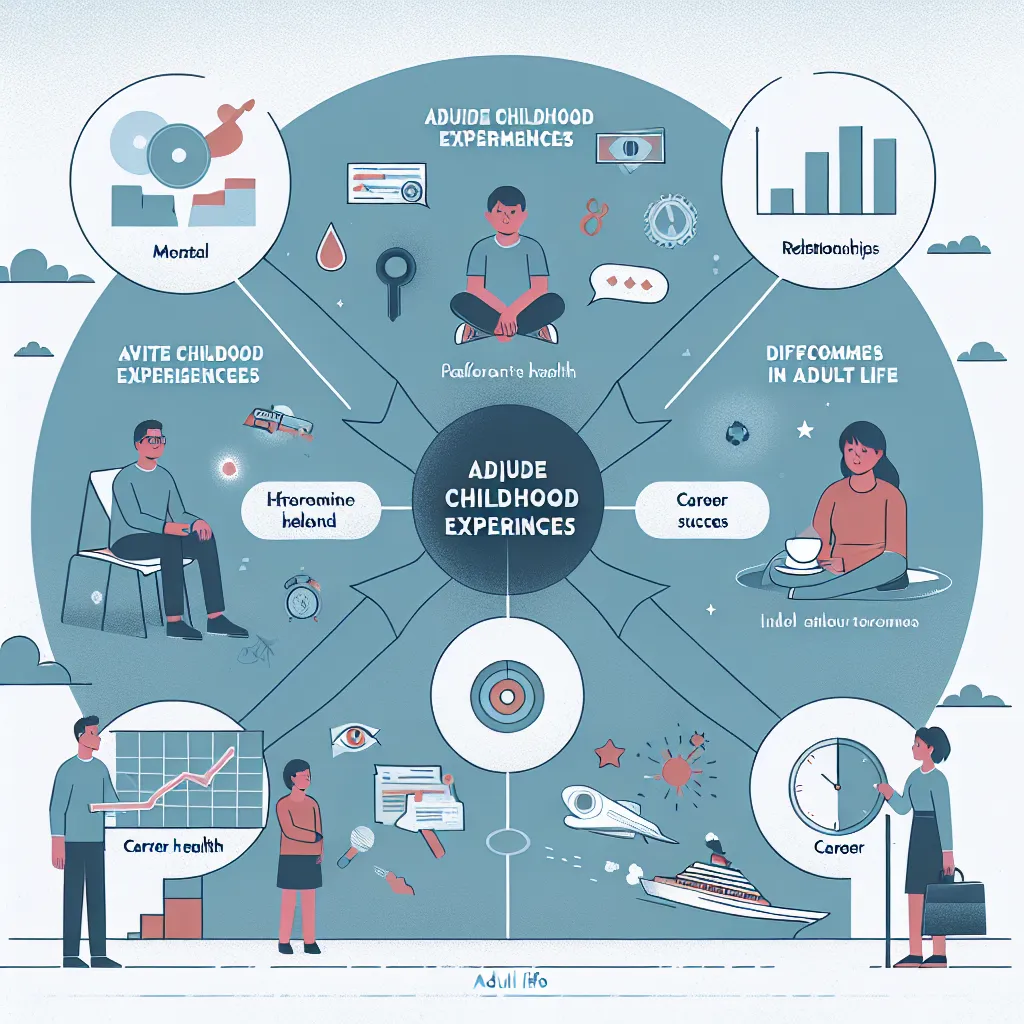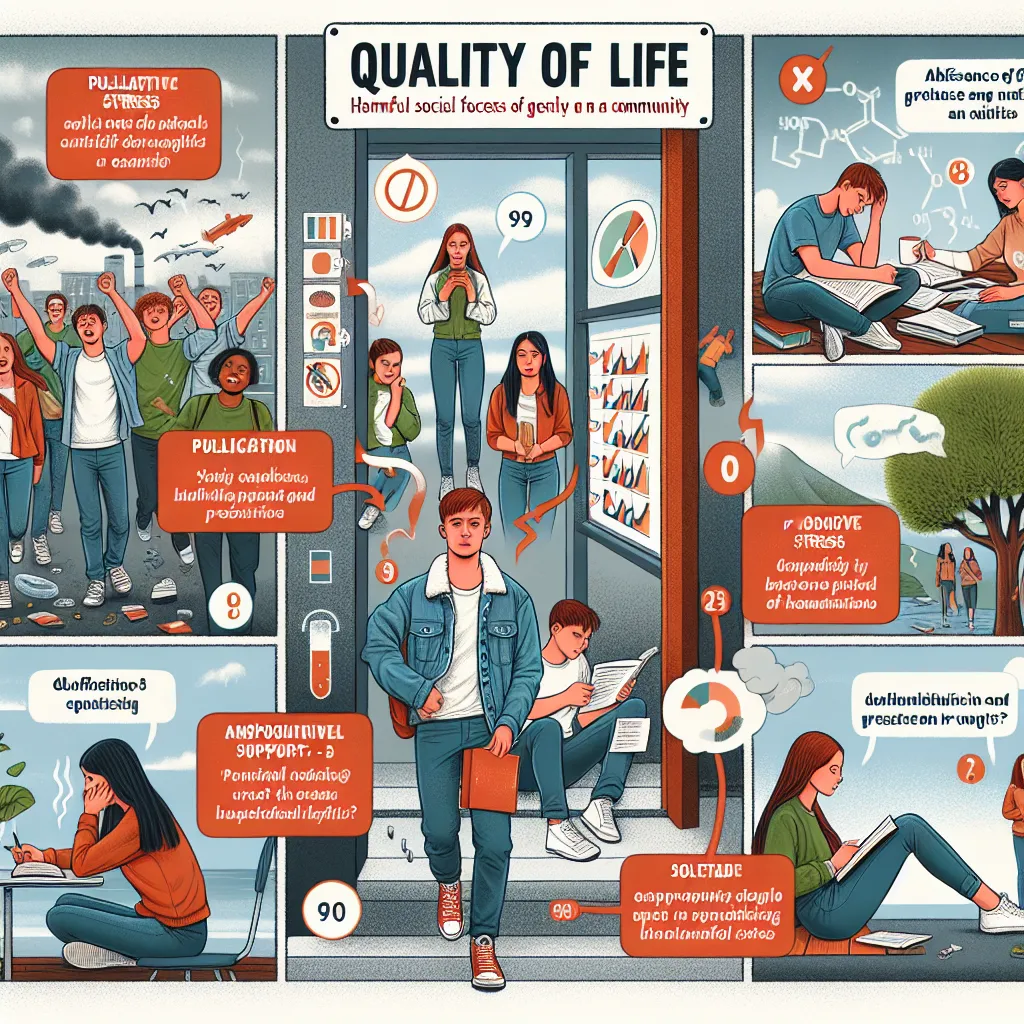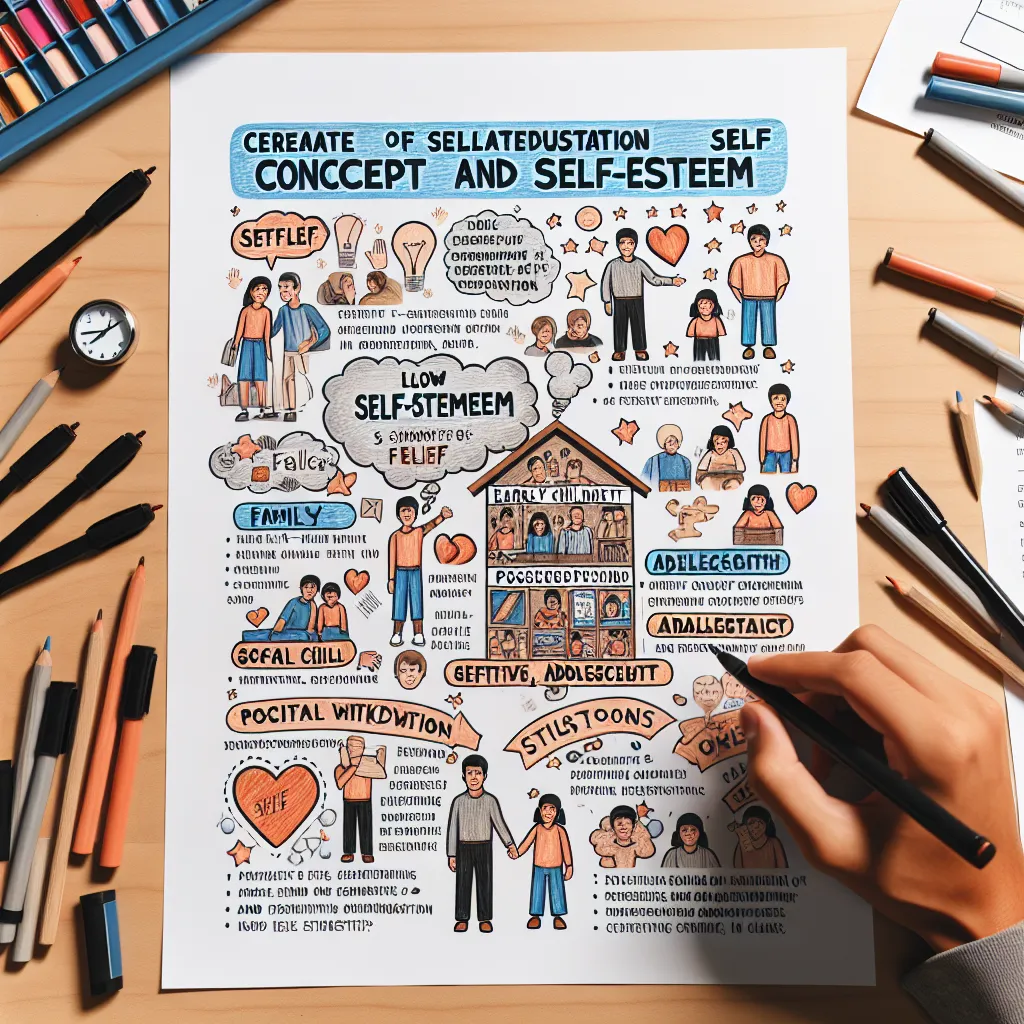Ask AI on The Internet
Question: What is the link between ACEs and adulthood outcomes?
Adverse Childhood Experiences (ACEs) are potentially traumatic events that occur in childhood (0-17 years), such as experiencing violence, abuse, or neglect, witnessing domestic violence, or growing up in a household with substance misuse or mental health issues. Research has shown a significant link between ACEs and various negative outcomes in adulthood. Here are some ways in which ACEs can impact adulthood: 1. **Physical Health:** - **Chronic Diseases:** Adults who experienced ACEs have a higher likelihood of developing chronic diseases such as cardiovascular disease, diabetes, and cancer. - **Obesity:** There is a strong correlation between high ACE scores and higher rates of obesity in adulthood. - **Autoimmune Diseases:** Higher ACE scores may be connected to an increased incidence of autoimmune diseases. 2. **Mental Health:** - **Depression and Anxiety:** A history of ACEs is strongly associated with increased risk of depression, anxiety, and other mood disorders. - **Post-Traumatic Stress Disorder (PTSD):** Individuals with multiple ACEs are at a higher risk of developing PTSD. - **Substance Abuse:** Adults with higher ACE scores are more likely to engage in substance use and develop dependencies on alcohol, drugs, or tobacco. 3. **Behavioral Outcomes:** - **Risky Behaviors:** There's a higher tendency for risky behaviors such as smoking, alcohol abuse, and drug use. - **Violence and Criminality:** Increased propensity for becoming perpetrators or victims of violence and engaging in criminal activities. 4. **Social Outcomes:** - **Education and Employment:** ACEs can negatively impact educational attainment and job stability. - **Interpersonal Relationships:** Challenges in forming and maintaining healthy relationships, increased risk of domestic violence, and difficulties in parenting. 5. **Economic Outcomes:** - **Financial Instability:** Individuals with high ACE scores may face more difficulties maintaining steady employment, leading to financial instability and poverty. 6. **Overall Mortality:** - **Lifespan:** Higher ACE scores are correlated with a reduced lifespan. It's important to note that while ACEs can have profound effects, they do not determine destiny. Interventions such as therapy, support networks, and community resources can significantly help individuals with high ACEs improve their overall life outcomes. Building resilience through positive experiences, relationships, and coping mechanisms also plays a critical role in mitigating the negative effects of ACEs. If you or someone you know has been affected by ACEs, seeking professional help from therapists, counselors, or support groups can be beneficial. Additionally, public health initiatives aimed at preventing ACEs and supporting affected individuals can contribute to improving community health and well-being.
Think your answer is better than the AI's? Post it below.
Other Most Relevant Posts:
 Ask AI: Explain two contributing factors of Unsafe sexual practices and substance abuse youth risky behavior
Ask AI: Explain two contributing factors of Unsafe sexual practices and substance abuse youth risky behavior
Question Tags
If you want your question answered by an AI, click here.






Post your own comment: